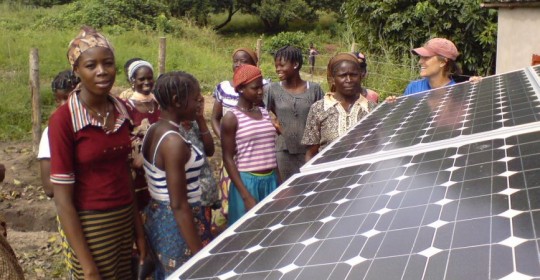There are no products in your shopping cart.
| 0 Items | £0.00 |


NIGERIA is to receive $3bn from the World Bank and the US Export-Import Bank (Exim Bank) to assist the government with the implementation of its energy transition plan aimed at enabling the nation to achieve its zero emissions target by 2060.
At the moment, Nigeria has a chronic electricity supply problem as the country only generates about 7,000MW, of which it can only distribute about 4,000MW, far short of the 50,000MW required. A signatory to the 2015 Paris climate Change Agreement, Nigeria is committed to reducing greenhouse gases and this involves moving away from polluting fossil fuels to clean energy.
To address both problems simultaneously, Nigeria needs to step up the production of clean energy but the country is lagging far behind the rest of the world with initiatives like solar farms, wind farms and generating power from waste. To hasten the process, vice president Professor Yemi Osinbajo launched the global Energy Transition Plan yesterday.
According to Professor Osinbajo, the energy transition plan was designed to address energy poverty and climate change crisis and deliver sustainable development goal seven by 2030 and net zero by 2060. He noted that the plan will lift 100m people out of poverty, reduce Nigeria’s carbon footprint, drive economic growth and create jobs.
As part of its clean energy programme, Nigeria had launched its energy transition plan to achieve universal energy access by 2030 and a carbon-neutral economy by 2060 to tackle poverty and climate change. Nigeria's World Bank country director Shubham Chaudhuri, said the international lender intended to commit over $1.5bn towards the country’s energy transition plan.
Mr Chaudhuri said: “We plan to commit over $1.5bn towards the Energy Transition Plan on renewable energy, on power sector reforms and potentially hydropower, on clean cooking, and wherever opportunities arise. The policy and institutional reforms that will be necessary are also part of the agenda and we hope to be able to provide support for the fundamentally imperative of energy access but in a way that is consistent with the energy transition, what I think of as the Nigerian Energy Access and Transition (Neat) imperative.
“The Neat imperative is what we here at the World Bank are absolutely committed to supporting.” Professor Osinbajo said Nigeria’s energy transition requires a significant scale of resources which includes spending $410bn by 2060.
Adam Cortese, the chief executive of Sun Africa, said his company was in the final stage of talks with the US Exim Bank on a $1.5bn financing package. He added: The launch of Nigeria’s Energy Transition Plan has further accelerated our efforts, proving Nigeria to be fertile grounds for investments in the sector.
"We are in the final stages of discussion with US Exim Bank on a $1.5bn financing package. We are truly excited about the future and we are looking forward to helping Nigeria lead by way of example in Africa.”
Professor Osinbajo added that Nigeria has set up an inter-ministerial energy transition implementation working group and is currently engaging with partners to secure an initial $10bn support package. At the most recent climate summit in Glasgow last year, President Muhammadu Buhari announced Nigeria’s ambition to achieve net-zero emissions by 2060 drawing on insights from the country’s Energy Transition Plan.